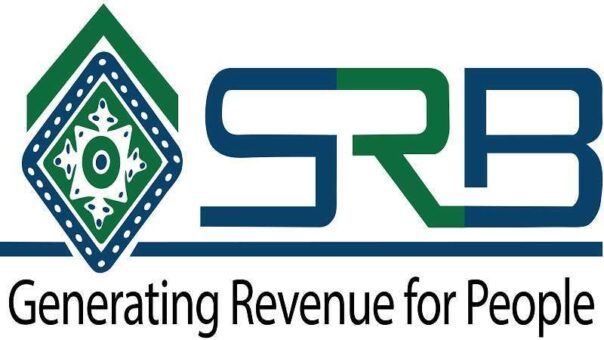Karachi, May 22, 2025 – The Government of Sindh has officially notified the implementation of super tax rates on agricultural income, following the enactment of the Sindh Agricultural Income Tax Act, 2025.
(more…)Tag: agriculture income
-

Sindh approves landmark agricultural income tax law
Karachi, February 3, 2025 – In a historic move, the Sindh government has officially approved the imposition of an agricultural income tax, marking a significant policy shift aimed at enhancing fiscal discipline and revenue generation.
(more…) -

Pakistan Mulls Mandatory Tax Returns for Agricultural Income
In a move poised to overhaul the taxation system for agricultural income, Pakistan is strongly considering making it mandatory for earners of agricultural income to file their annual tax returns along with wealth statements.
(more…) -

FBR defines agricultural income for tax exemption
The Federal Board of Revenue (FBR) has provided an explanation of agricultural income to allow for exemptions under the Income Tax Ordinance, 2001.
(more…) -

FBR estimates Rs69.5 billion annual tax loss on agriculture income
ISLAMABAD: Federal Board of Revenue (FBR) has estimated an amount of Rs69.5 billion annual loss of tax on agriculture income, sources said on Tuesday.
In a report the FBR said that agricultural income is exempt from income tax under section 41 of the Income Tax Ordinance, 2001.
However, it falls under the provincial domain as per the Constitution of Pakistan, and the provinces have the mandate to levy tax on agricultural incomes.
The provincial collection of income tax on agricultural income for FY 2018 is as under:
Punjab: Rs 913 million
Sindh: Rs559 million
KP: Rs100 million
Balochistan: Rs17 million
Total: Rs1.589 billionThe FBR carried out an estimate on the basis of agriculture census 2010 in order to measure the actual potential of revenue from agriculture.
The key assumption in this estimation is that the average income per acre earned by farmer has been taken at Rs. 50,000, keeping in view current year’s average price levels of commodities.
Farm sizes have been categorized as per column 2 of the table below. Farms smaller than 7.5 acres have not been consid¬ered, being of subsistence income level.
Income for each farm size (column 5) is estimated by multiplying cultivated area (acres) for each category with average income per acre (Rs50,000). If statutory slab-wise tax rates are applied on average income per farm for the six categories of farm sizes, the estimated revenue forgone due to this exemption comes to Rs69.5 billion annually.
-

Adjustable advance income tax recommended on sale of agri produce
KARACHI: The tax authorities have been recommended to collect adjustable advance income tax on sale of agriculture produce in order to broaden tax base.
Overseas Investors Chamber of Commerce and Industry (OICCI) in its proposals for provincial budget 2020/2021 submitted to Sindh government, recommended that adjustable withholding tax should be introduced on sale of agricultural produce, such as sugar cane, wheat, cotton and others.
The OICCI said that as per the constitution of Pakistan, right of taxing income lies with the federal government except income from agriculture which is taxable under the respective provincial laws.
Agriculture related activities contribute approximately 20 percent of the overall national production. However, the collection of agricultural income tax is estimated to be even less than 1 percent of total collection of Federal and Provincial taxes.
The disparities in tax levies between different incomes segments need to be addressed.
“Therefore Sindh government/revenue authorities should take appropriate measures to increase revenue collection from the agriculture sector.”
The original rationale of keeping agriculture out of tax net to facilitate small agriculturists is not applicable, due to non-implementation of land reforms, and the benefit of the tax exemption is being availed, as per common perception, by big landowners earning huge incomes and unscrupulous elements by transfer of income and wealth to businesses fronting as agriculture sector.
Some of the key issues related to agriculture income are identified as follows:
Principle of Non-Discrimination: In principle, income from all sources, including agriculture, if exceeding the minimum threshold applicable for other sources of income should be taxed without any discrimination.
Determination Basis: A transparent, easily understandable and applicable manner of determining such income should be designed.
Flexible Income Based System: The current agricultural income tax has effectively become a land tax, based on land holding, that leads to the perception that there is no tax on agricultural activities.
Identification and Linkage with National Tax Number: There is no identification of even the small number of agricultural income taxpayers as they are not on the national tax number (NTN) system.
The OICCI recommended:
Income Based System: At present, tax is payable on ‘land holding’ or ‘net income’ whichever is higher. However, the manner of determination of net income is complicated and therefore in almost 100 percent of the cases tax is received on land holding basis. Therefore taxability of income on land holding should be abolished and taxes collected on ‘net income basis’.
There are only around 10 to 15 agencies and enterprises which acquire such crops. The advance tax should be adjustable against income tax payable on net income basis. Rates of withholding and the threshold for the same should be aligned with other products – for example any payment exceeding Rs 25,000 should be subject to advance tax at the rate of 1 to 3 percent as the case may be. Federal taxation system may be used for such collection on behalf of the provincial government in the same manner as is being done in other cases by the provincial government.
Link and Interface with the National Tax Number: All persons holding land should be required to obtain a Provincial Tax Number (PTN), like the NTM maintained by FBR, modified by adding one or two digits so as to identify that source of income is agriculture.
Definition of Agricultural Activity: Definition of agricultural income should be amended to include all agricultural activities like non-corporate dairy farming, poultry etc.
Rent for the Use of Agricultural Land: Under the specific provision, the rent for use of agricultural land, which is general practice, especially for large landowners, is an agriculture income. There is effectively no mechanism to ensure completeness of recovery of taxes from such receipts. Such rent income should be subject to same rate of tax as is currently in vogue on property income under the FBR system.
-

Exemption on agriculture income should be withdrawn
KARACHI: Overseas Investors Chamber of Commerce and Industry (OICCI) has suggested that exemption on agriculture income should be withdrawn and bring all income into tax net.
The OICCI in its proposals for budget 2020/2021, recommended withdrawal of exemption of agriculture income and also proposed amending Section 41 of Income Tax Ordinance, 2001.
The OICCI said that the GDP includes some sectors which are exempt from income tax. The biggest exempted sector is agriculture which does not make any contribution to the national exchequer, despite the fact that over 65 percent of Pakistan’s population is directly or indirectly linked with the agricultural sector.
The original rationale of keeping agriculture out of tax net was to facilitate the small agriculturists.
However due to non-implementation of land reforms the benefit of the tax exemption is being availed by big landowners earning huge incomes.
Unscrupulous elements also transfer their income and wealth to businesses fronting as agriculture sector.
The OICCI recommended:i. Exemption given to agriculture income should be withdrawn and agriculturists should file income tax returns and wealth statements.
ii. Suitable provisions should be incorporated in Income Tax Ordinance 2001 to enable tax authorities to implement the requirement of filing of income tax returns and wealth statements, effectively.
iii. All incomes should be taxed and as a general rule exemptions be given only for attracting FDI and for under privileged and poor sections of society or, in exceptional circumstances, as motivation to encourage the registration of individuals and all legal entities.
-

Pakistan assures IMF of strengthening taxation on real estate, agriculture income
KARACHI: Pakistan has assured International Monetary Fund (IMF) of removing distortion in taxation system and strengthening taxation on real estate and agriculture income.
The IMF on Monday issued country report on Pakistan after successful $6 billion loan program.
The report said that a large deficit would require aggressive revenue collection.
A multi-year effort will aim to revamp tax policy and tax administration. With less than 1.5 million taxpayers filing tax returns and tax compliance generally very low, tax policy and tax administration measures will center on broadening the tax base while maintaining a low tax rate, aiming to ensure progressivity of the tax system.
The country has agreed to increase additional 4 to 5 percent tax to the GDP by end of 3-year IMF program in order to bring Pakistan tax ratio in line with peer Emerging Markets.
Key measures include:
— Tax policy reforms
In the near term, measures include removing exemptions and preferential treatment to reduce distortions in the tax system and broaden the tax base.
These include the removal of General Sales Tax (GST) exemptions and preferential rates, except for basic food and medicines, a measure that will significantly improve revenues.
Greater inter-provincial harmonization and coordination of GST will also simplify filing procedures and increase compliance.
Overtime, the Pakistani authorities are committed to taking steps to transform the GST into a broad-based VAT and making the PIT fairer and more progressive by raising the upper-end of the PIT structure and consider eliminating Personal Income Tax (PIT) tax credits and deductions for the higher income brackets.
In addition, other tax policy measures include:
(i) further strengthening taxation on real estate and on agricultural turnover or income by provinces;
(ii) ensuring equivalent taxation of all sources of income; and
(iii) eliminating distortionary withholding taxes.
The report said that the tax administration reforms to bolster the authorities’ efforts to collect taxes.
“Implementation of a full, risk-based audit framework will be facilitated by the recent reversal4 of legal provisions limiting the use of tax audits and will be supported by an increase in legal penalties for noncompliance.
Moreover, licenses for the track-and-trace system for excises on cigarettes will be issued by end-September 2019 (structural benchmark), with a system roll out by end-March 2020.
The authorities are also considering options to make Pakistan’s tax administration less fragmented and more business friendly, including through the creation of a new semi-independent national tax authority to collect the main revenue sources.
Finally, the country has committed to not granting further tax amnesties (continuous structural benchmark).
